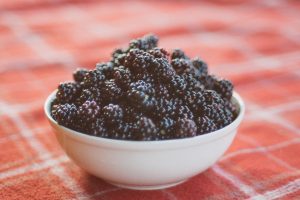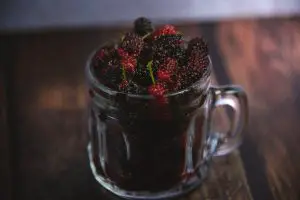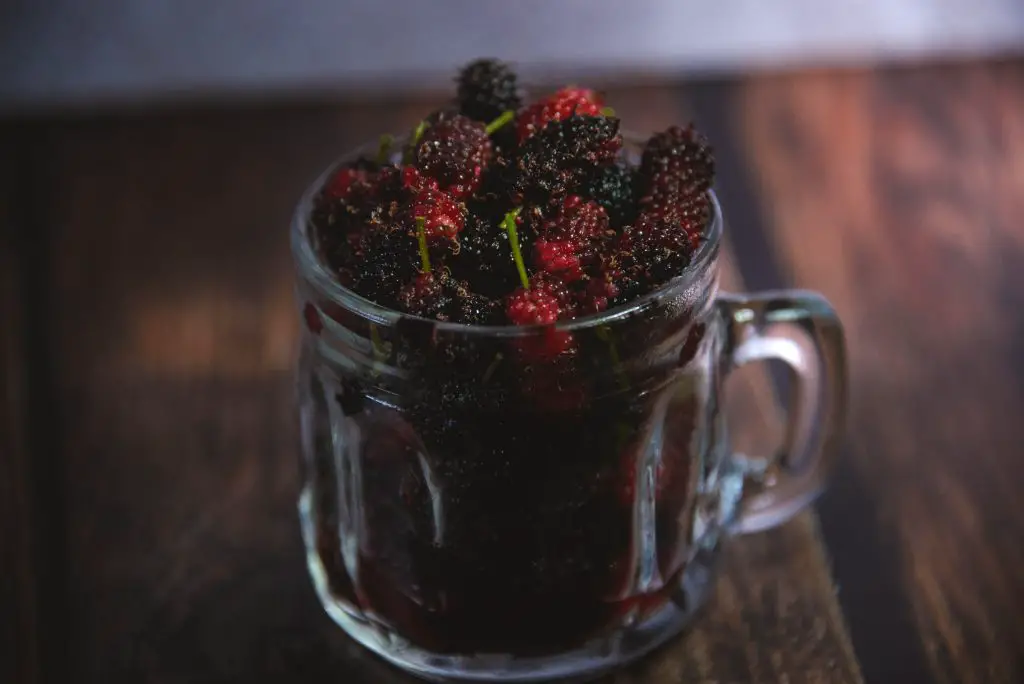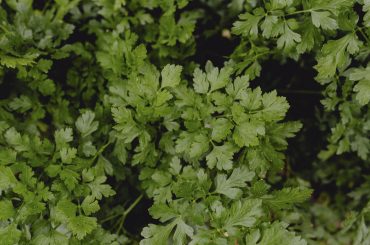With their plump and juicy texture, Blackberries are a beloved fruit that captivates our taste buds with their exquisite balance of sweetness and tartness. Whether enjoyed fresh off the vine, incorporated into mouthwatering desserts, or used to create delectable preserves, blackberries have long been revered among fruit enthusiasts. However, amid the enchantment of blackberry season, there can be an unfortunate encounter—an unfortunate occurrence of bitter blackberries. The unexpected bitterness can leave a sour taste in our mouths. But fear not, as this article sets out to unravel the mystery of bitter blackberries, delving into the causes behind their bitterness, presenting solutions to tame their undesirable taste, and exploring these berries’ vast culinary potential.
Blackberries, nature’s little gems, hold a unique allure that beckons us with their deep, dark hues and promises of luscious flavor. However, despite their intrinsic appeal, there are instances when these captivating fruits betray our expectations and deliver an unexpected bitterness. The reasons behind this phenomenon are multifaceted, encompassing factors such as ripeness, environmental influences, and even the specific variety of blackberries. By understanding these causes, we can transform bitterness into sweetness and reclaim the pleasure of indulging in these delightful fruits.
This article aims to shed light on the various causes contributing to blackberries’ bitterness. We will explore the importance of ripeness, emphasizing the need to let these berries reach their full maturity before picking. Environmental influences will be unraveled, enlightening us on how heat, drought, and temperature fluctuations can affect the taste of blackberries. Furthermore, we will delve into the world of blackberry varieties, understanding how different cultivars can possess varying levels of sweetness or bitterness.
With a thorough understanding of the causes, we will turn our attention to the solutions that can help tame the bitterness of blackberries. We will share insights on optimal harvesting techniques, storage conditions, and culinary transformations that can turn even the most bitter blackberries into delightful treats. From cooking and baking techniques to exploring the art of flavor pairing, we will unlock the secrets to enhancing the taste profile of these once-disappointing berries.
As we embark on this flavorful journey, we will also discover the vast culinary potential of blackberries. Explore a collection of mouthwatering recipes that showcase the versatility of these berries, from pies and jams to savory sauces and beyond. Additionally, we will explore methods to preserve the harvest, allowing us to savor the delightful taste of blackberries long after the season has passed.

So, let us dive deep into the world of blackberries, uncover the causes behind their occasional bitterness, and unlock the key to transforming these fruits into delectable delights. Together, we will navigate the realm of ripeness, explore the influence of environmental factors, and embrace the diverse array of blackberry varieties. Through our journey, we will unveil the solutions enabling us to savor the full potential of blackberries, indulging in their sweet, irresistible flavor.
Contents
Understanding the Bitterness:
Blackberries, typically known for their delectable sweetness, can sometimes exhibit an unexpected bitter taste. We must explore the factors contributing to this bitterness to grasp why this occurs. Several key elements play a role, including ripeness, environmental conditions, and the specific variety of blackberries.
Ripeness is a crucial factor that influences the taste of blackberries. When blackberries are not allowed to ripen fully, their flavors may not fully develop, resulting in a bitter taste. It is essential to ensure that blackberries have reached their optimal level of ripeness before harvesting them. Look for berries that are plump, glossy, and easily detach from the plant. These visual cues indicate that the sugars have fully developed, ensuring a sweet, satisfying flavor.
Environmental conditions also have a significant impact on the taste of blackberries. Excessive heat, drought, or temperature fluctuations can adversely affect the fruit, leading to a bitter taste. These conditions can cause plant stress, altering the biochemical processes responsible for sugar production and flavor development. Blackberries grown in unfavorable environments may be more prone to bitterness compared to those grown in ideal conditions.
Furthermore, the variety of blackberries chosen can contribute to their bitterness. Different blackberry varieties have distinct flavor profiles, some naturally sweeter than others. It is worth exploring various varieties to find the ones that suit your taste preferences. Experimenting with different cultivars can help you discover blackberries with a sweeter taste, minimizing the chances of encountering bitterness.
The presence of bitterness in blackberries significantly impacts the overall taste experience. Bitterness can overpower the desired sweet-tart balance that blackberries are known for, diminishing their enjoyment. It can leave an unpleasant aftertaste and detract from the berry’s natural vibrancy and flavor complexity. Recognizing the impact of bitterness on the taste experience emphasizes the importance of fully addressing this issue to fully appreciate the delightful characteristics of blackberries.
By comprehending the reasons behind the bitterness of blackberries, including ripeness, environmental conditions, and variety, we gain insight into how these factors influence taste. Armed with this knowledge, we can take proactive measures to ensure optimal ripeness, create favorable environmental conditions, and select the right blackberry varieties to minimize the occurrence of bitterness. In doing so, we can maximize the pleasure of consuming blackberries, savoring their natural sweetness and reveling in their delightful flavor experience.
Causes of Bitter Blackberries:
Ripeness Matters
One of the primary causes of bitter blackberries lies in their ripeness. Allowing blackberries to ripen fully before picking them is crucial to ensure optimal taste and sweetness. Harvesting blackberries too early, when underripe, can produce a bitter flavor.
Understanding the importance of ripeness is key to enjoying the full potential of blackberries. When fully ripe, blackberries reach their peak sweetness and offer a delightful balance of flavors. Visual cues can help determine if blackberries are ripe and ready for picking. Look for berries that are plump, deeply colored, and have a shiny appearance. They should also easily detach from the plant without any resistance. These visual indicators suggest that the sugars have fully developed, enhancing the berry’s sweetness and minimizing the likelihood of bitterness.
Conversely, underripe blackberries lack the necessary sugar content and flavor development. Harvesting these berries prematurely means they have not reached their optimal sweetness, making them more susceptible to bitterness. It is essential to exercise patience and allow blackberries to ripen fully before indulging in their exquisite flavors.
Environmental Influences
The environment in which blackberries grow significantly affects their taste profile. Several environmental factors can contribute to the bitterness of blackberries. Excessive heat, drought, and temperature fluctuations are environmental conditions that can affect the fruit’s flavor.
Extreme heat can place stress on blackberry plants, causing changes in their biochemical processes. This stress can lead to sugar production and metabolism alterations, resulting in a higher likelihood of bitterness in the fruit. Similarly, prolonged periods of drought can impact the plant’s ability to absorb nutrients and water, affecting flavor development.
Temperature fluctuations, especially rapid shifts between warm and cold, can influence blackberry taste. These fluctuations can disrupt the biochemical reactions responsible for sugar accumulation and flavor synthesis, potentially leading to bitterness.
Understanding the environmental influences on blackberry taste allows us to appreciate the complex relationship between the fruit and its surroundings. By mitigating these factors, such as through proper irrigation and shade provision, we can promote optimal growth conditions that minimize the likelihood of bitterness.

Variety Matters
The variety of blackberries chosen can significantly impact their taste, including their potential for bitterness. There is a remarkable diversity of blackberry varieties, each offering its unique flavor profile. Some varieties naturally possess a higher sweetness, while others may exhibit more tartness or even bitterness.
Exploring different blackberry varieties is exciting to find the preferred taste experience. Each variety has its characteristics, including sweetness, acidity, and bitterness. By sampling various cultivars, one can discover blackberries that align with their taste preferences, minimizing the chances of encountering unwanted bitterness.
From sweeter varieties known for their dessert-like flavor to more tangy or earthy options, the wide range of blackberry varieties ensures something for everyone. Embrace the opportunity to explore different varieties and unlock their distinct tastes, finding the perfect match for your palate.
Understanding the factors of ripeness, environmental influences, and variety helps shed light on the causes of bitter blackberries. By recognizing the significance of allowing blackberries to ripen fully, considering environmental conditions, and exploring different varieties, we can actively mitigate bitterness and enhance the overall taste experience. Embrace the complexity of blackberries and revel in their diverse flavors to fully appreciate the delightful world of these enticing fruits.
Solutions to Tame the Bitterness:
Optimal Harvesting and Storage
Proper harvesting techniques and appropriate storage conditions are crucial to mitigate the bitterness of blackberries. By following these guidelines, you can ensure maximum sweetness and preserve the flavor of the berries.
- When harvesting blackberries, use gentle handling techniques to avoid bruising or damaging the fruit. This helps maintain the berries’ integrity and prevents any bitterness resulting from mishandling.
- Store blackberries in the refrigerator immediately after harvesting or purchasing them. Please place them in a shallow container lined with paper towels to absorb excess moisture.
- Avoid picking overripe blackberries, as they can have an intensified bitterness. Overripe berries often have a softer texture and may appear mushy or discolored. Harvest them at their peak ripeness to enjoy the best flavor.
Culinary Transformations
Cooking and baking methods offer effective ways to mitigate the bitterness of blackberries and transform them into delightful culinary creations.
- Cooking or baking blackberries can help reduce bitterness and enhance their flavor. Heat can soften the tannins responsible for bitterness, producing a milder taste. Make blackberry compotes and sauces or incorporate them into baked goods like pies, tarts, or muffins.
- Making blackberry jams, jellies, or preserves is another way to harness the sweetness and natural flavors of the fruit while minimizing bitterness. The addition of sugar or other sweeteners during the preservation process can balance out any inherent bitterness.
- Experiment with complementary ingredients to balance the taste of blackberries. Sweeteners like honey, maple syrup, or agave nectar can help counteract bitterness. Tangy ingredients such as citrus zest or juice can add a refreshing acidity that harmonizes with the fruit’s flavors.
Flavor Pairing
Pairing blackberries with complementary flavors can create a delightful balance and help counteract the bitterness.
- Embrace the concept of complementary flavors by pairing blackberries with ingredients that naturally complement their taste. Sweeteners like vanilla, cinnamon, or mint can enhance the sweetness and mask bitterness.
- Tangy ingredients like lemon, lime, or yogurt can provide a contrasting acidity that cuts through bitterness and adds brightness to blackberries.
- Consider combining blackberries with other fruits, such as raspberries, strawberries, or peaches, to create complex flavor profiles that balance any underlying bitterness.
By implementing these solutions, you can tame the bitterness of blackberries and unlock their full culinary potential. Proper harvesting and storage techniques, along with cooking, baking, and flavor pairing strategies, allow you to savor blackberries’ sweetness and rich flavors while minimizing any undesirable bitterness. Creativity and experimentation can transform bitter blackberries into delightful culinary masterpieces.
Exploring the Culinary Potential:
Recipe Ideas

Blackberries offer many culinary possibilities, and exploring different recipe ideas can showcase their versatility and unique flavors.
- Indulge in the sweet delight of a blackberry pie, where the berries’ vibrant colors and natural sweetness shine through a buttery crust. Add a touch of lemon zest or cinnamon to enhance the flavor profile further.
- Try making homemade blackberry jam, capturing the essence of these berries in a jar. Spread it on toast, swirl it into yogurt, or use it as a filling for pastries.
- Experiment with savory dishes by incorporating blackberries into sauces or dressings. The tartness of blackberries can add a delightful complexity to savory dishes like grilled meats or salads. For flavor, consider pairing them with balsamic vinegar, shallots, or fresh herbs.
- Discover the joy of blackberry-infused beverages. Create refreshing blackberry lemonade, muddle blackberries into cocktails, or steep them in water for a naturally flavored infused drink.
- Explore the world of blackberry desserts beyond pies and jams. There are countless ways to satisfy your sweet tooth, from blackberry cheesecake and blackberry crumble to blackberry ice cream or sorbet.
Remember, these recipes serve as a starting point. Feel free to adapt and personalize them to suit your taste preferences, incorporating additional ingredients or experimenting with different cooking techniques. Blackberries’ culinary potential is unknown, and it’s up to you to explore and discover your favorite preparations.
Preserving the Harvest
Blackberry season is a fleeting pleasure, but preserving the harvest allows you to enjoy its flavors throughout the year.
- Freezing is a simple and convenient method to preserve blackberries. Frozen blackberries can be used in smoothies, baked goods, or thawed for enjoying as a snack.
- Canning is another popular preservation method. Prepare a blackberry compote or syrup and follow safe canning practices to seal them in jars. These can be used as toppings, fillings, or incorporated into recipes.
- Consider making blackberry preserves, which involve cooking the berries with sugar and sometimes pectin to create a thick, sweet spread. Follow tested recipes and proper canning procedures to ensure shelf stability.
When preserving blackberries, it is essential to handle them with care to maintain their taste quality. Use ripe and high-quality berries, and follow recommended preservation techniques to retain their flavor, color, and texture.
Preserving the harvest allows you to enjoy blackberries beyond their season and adds versatility to your culinary repertoire. Incorporate preserved blackberries into your favorite recipes or savor them on their own as a reminder of the vibrant flavors of summer.
By exploring the culinary potential of blackberries, trying out various recipe ideas, and preserving their harvest, you can fully embrace the versatility and delectable flavors these berries offer. Let your creativity run wild in the kitchen, and savor the essence of blackberries throughout the year.
Bitter Blackberries:
In conclusion, bitter blackberries can be attributed to several factors, including ripeness, environmental conditions, and the variety of blackberries chosen. Understanding these causes is essential in our quest to tame bitterness and fully appreciate blackberries’ flavors.
We have explored various solutions to mitigate the bitterness of blackberries. Optimal harvesting and storage techniques, such as allowing blackberries to ripen fully and carefully handling and storing them, can preserve their natural sweetness. Culinary transformations, including cooking, baking, and pairing blackberries with complementary flavors, are delightful to balance taste and create unique culinary experiences. Additionally, preserving the harvest through freezing, canning, or making preserves allows us to enjoy the flavors of blackberries all year round.

As we delve into the culinary potential of blackberries, we are invited to embark on a journey of creativity and exploration. Blackberries can be incorporated into many recipes, from delectable pies and jams to savory sauces and refreshing beverages. The versatility of this remarkable fruit knows no bounds, and it is up to each of us to experiment, adapt, and discover our favorite preparations.
So, let us embrace the allure of blackberries and savor their natural sweetness, vibrant colors, and enticing flavors. Whether enjoyed fresh, transformed in the kitchen, or preserved for future indulgence, blackberries offer a world of culinary pleasure. Let us relish their delightful taste, celebrate their versatility, and continue exploring the countless ways blackberries can enhance our culinary experiences.
Ultimately, blackberries are more than just fruit—they are a testament to nature’s bountiful offerings and a source of joy for our taste buds. So, go forth and seize the opportunity to delight in the remarkable flavors of blackberries as you embark on a journey of culinary exploration and discover the endless possibilities they hold.
More Posts :
Mastering the Art of Growing and Caring for Jacaranda Trees in Texas: Expert Tips for 2023
Cilantro Spacing: Maximizing Growth and Harvest in 2023





